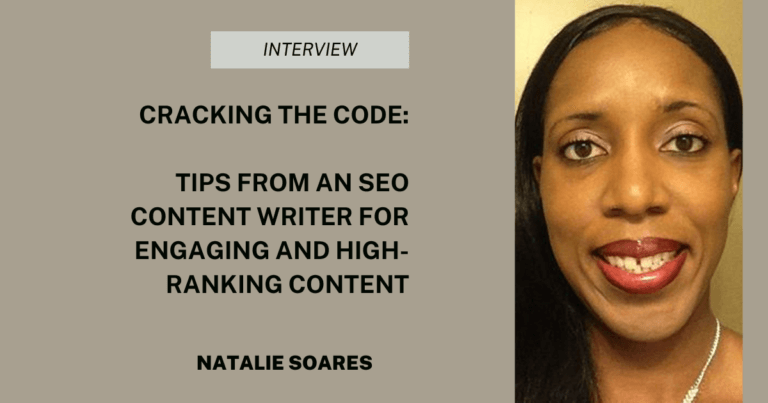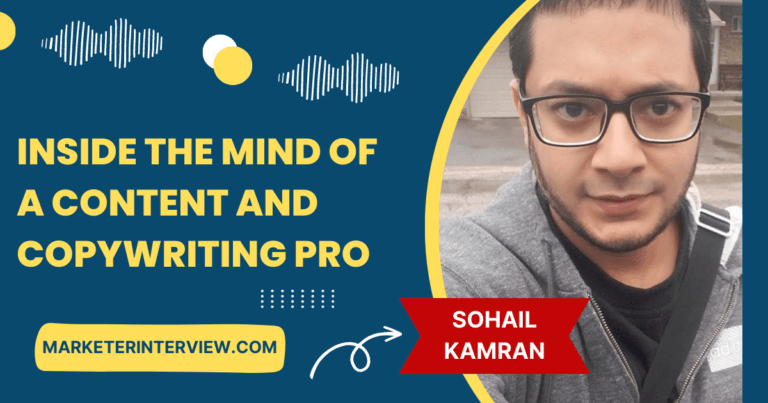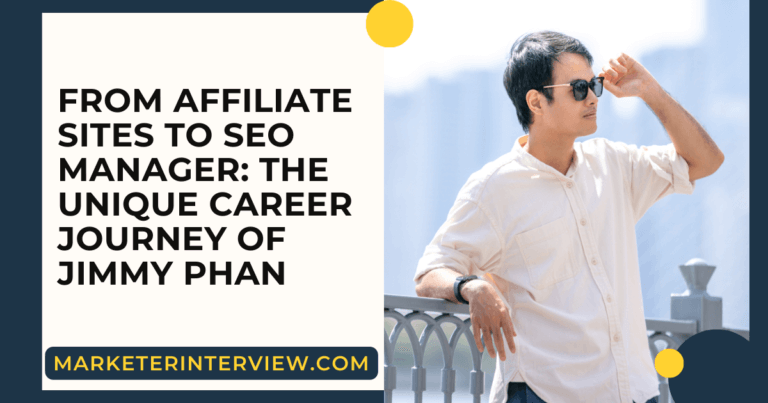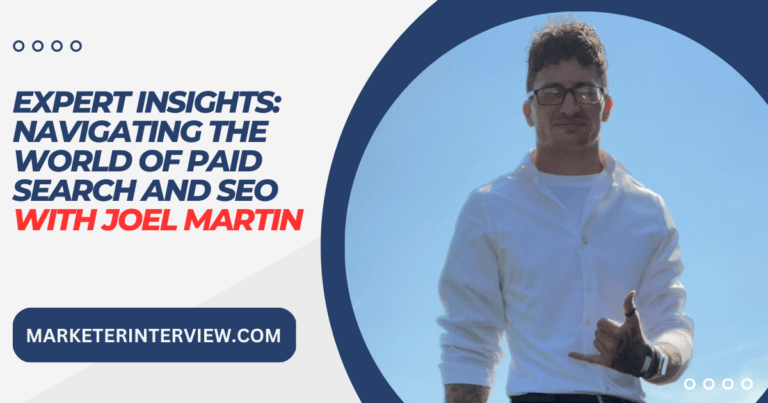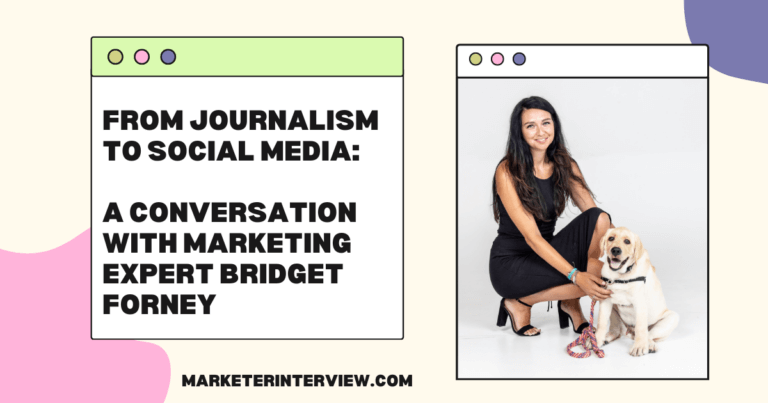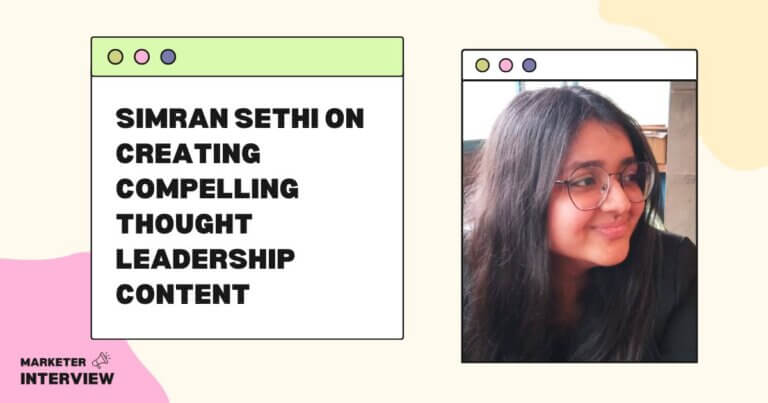Swapnil Pate: Insights on Content, Leadership, and Career Growth
Today we have the pleasure of interviewing Swapnil Pate, Founder of Swapnil Pate SEO.
Swapnil is an accomplished SEO and growth marketer with over seven years of experience in the industry. He has won numerous awards for his contributions to content marketing, audience growth, and technical SEO for SaaS and publisher SEO.
Swapnil works closely with editorial and product teams to help them create optimized UI/UX and digital strategies and drive audience growth through SEO.
We’re excited to learn more about his journey into marketing, his expertise in SEO, leadership, and career growth.
Contents
- 1 Can you tell us about your background?
- 2 What inspired you to focus on SEO, content, and audience growth?
- 3 Can you discuss the most significant challenges you faced in your career?
- 4 How do you stay current with the latest SEO and content marketing trends and changes?
- 5 Can you walk us through your approach to creating a successful SEO strategy for your clients?
- 6 How do you measure the success of your SEO campaigns?
- 7 Can you share your leadership style and how it has evolved?
- 8 How do you mentor and train your team to achieve their professional goals?
- 9 What tools and software do you use for your SEO work?
- 10 What advice would you give aspiring marketers looking to make it in the industry?
Can you tell us about your background?
How I got into marketing is a funny story.
I had just completed the second year of my graduation in Computer Applications, and I knew by then that I wasn’t good at software development or programming.
During the summer vacation, I came across a Digital Marketing internship, and I decided to apply for it without prior knowledge.
I went for the interviews and was selected on the same day. I felt great that I found something to do!
I did a month-long internship there and loved the job, and the company rolled out a job offer to me right after that.
Without hesitation, I jumped on board and started working a full-time job along with my final year of graduation, and that’s when I started developing an interest in SEO. This happened 8 years ago, and I have never looked back since.
What inspired you to focus on SEO, content, and audience growth?
I was lucky to work on many in-house brands during my first job.
There was a lot of opportunity to try and implement a lot of new and innovative stuff under the guidance of my manager, who supported and encouraged me to do new things and learn the basics to grow their projects.
I was working on publishers and News SEO, a dynamic and fast-paced environment I naturally gravitated to.
Also, I found a weird yet unique high when the projects I was working on started to show phenomenal results due to efforts from the whole team.
I was fortunate to have found mentors in that organization who pushed me to new limits and motivated me to learn cutting-edge strategies and test them out on the projects, which ultimately, more often than not, brought results.
I developed a knack for publisher SEO, and that’s where I decided to laser focus and grow my niche.
A couple of years back, I got exposed to SaaS SEO when I got to work with a few up-and-coming SaaS startups, and now I focus on SaaS SEO consulting.
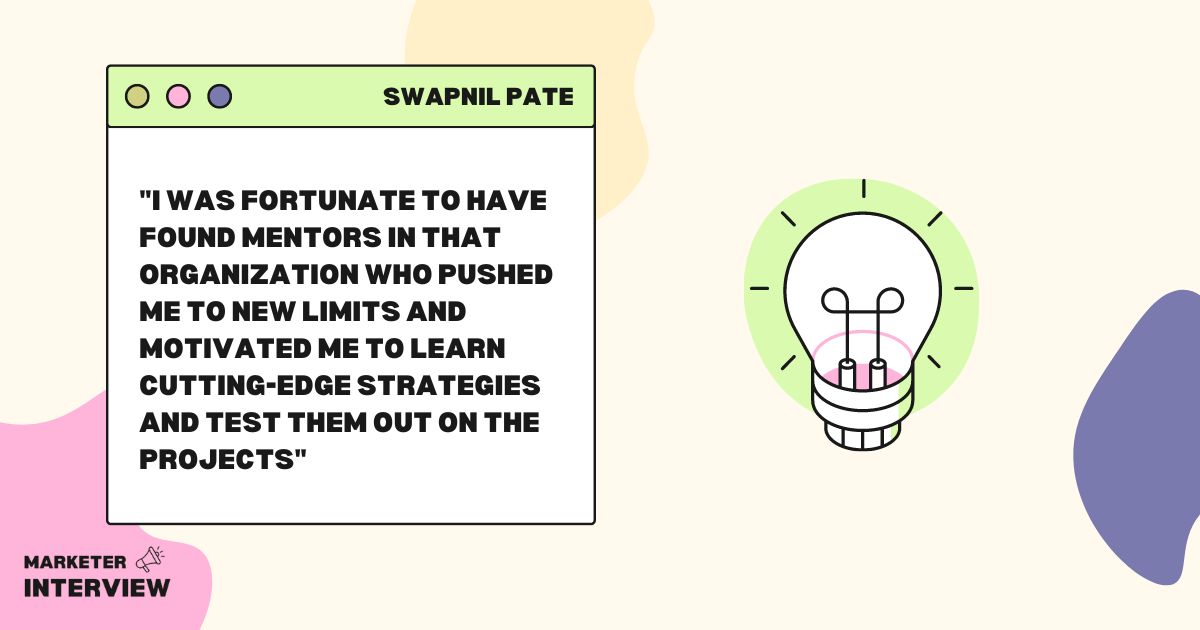
Can you discuss the most significant challenges you faced in your career?
The most common challenge in SEO is getting the clients to invest in it for the long term, as, more often than not, SEO doesn’t drive immediate results.
There are multiple factors, like the brands being legacy, complex technical setups, lack of resourcing, and focus on digital marketing, which affect the overall growth of the business.
The biggest challenge is to get clients or businesses to invest in SEO, as there is no short-term ROI.
We have had several clients stay with us for more than 2 years and seen crazy gains in their revenue, profits, and organic visibility. But then others debate its effectiveness and gravitate more towards paid marketing.
Also, it’s hard to convince clients of the effectiveness of technical optimizations as, often, no immediate or direct impact from it can be correlated to the growth of the site’s visibility. If the clients are non-technical or come from a traditional school of thought, it’s harder to convince them.
I recently created an infographic that sums up the SEO ROI more straightforwardly. I refer to this during my pitches or client meetings to convey why SEO is an effective marketing channel. This was inspired by Andrew Holland’s Cost of SEO vs. Value of SEO infographic.
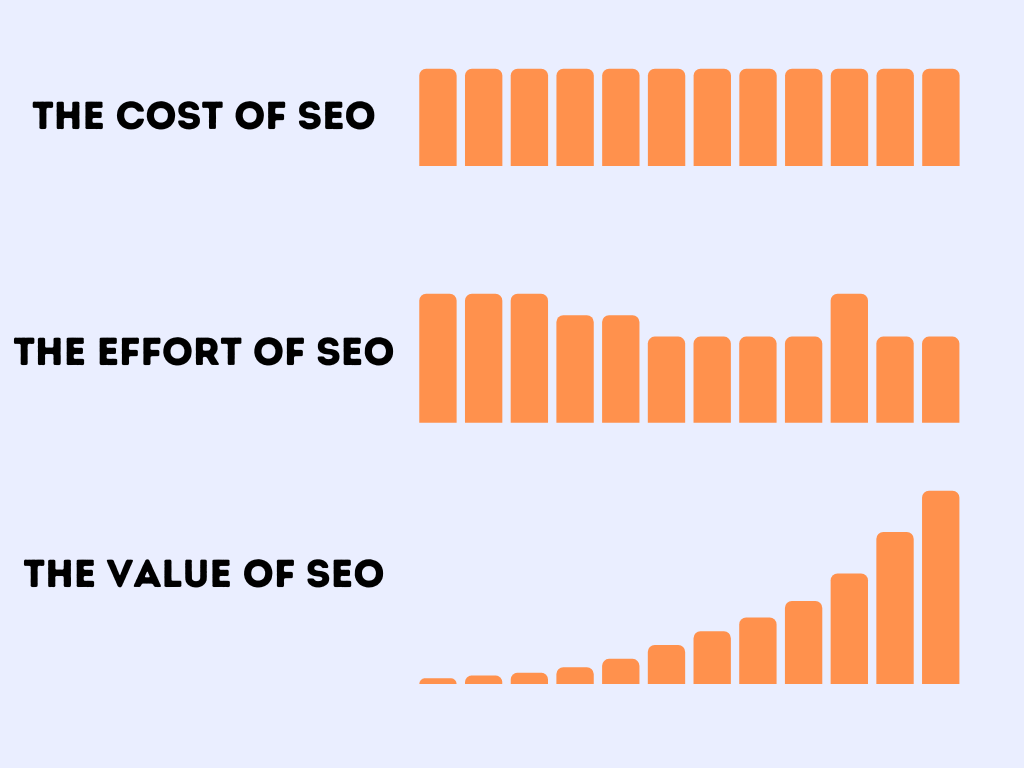
I also published this over LinkedIn and got a positive response from the community.
How do you stay current with the latest SEO and content marketing trends and changes?
During the initial years of my career, I spent a lot of time reading from popular websites where experienced SEOs contribute, like Search Engine Land or Search Engine Journal.
However, in recent years I have been actively using LinkedIn, Twitter, Podcasts, and YouTube to learn what seasoned SEOs are doing and how that’s affecting the businesses they manage.
I have built my list of legends in SEO who share their knowledge nuggets on podcasts, YouTube, and blogs, as this helps in understanding what types of challenges occur in the industry and how people solve them.
Can you walk us through your approach to creating a successful SEO strategy for your clients?
A successful SEO strategy has many moving pieces, but understanding the client’s business is more critical.
I prefer having a couple of discovery calls with the clients where we understand the client’s business, buyer persona, users/customers, average lead/sale value, and how selling happens after getting a lead, among others.
Often the first couple of months are very crucial when I onboard a client and focus on technical audits and recommendations, keyword and competitor research, and then create a content pillar strategy that tells the client what type of content we need to make, be it either ToFu, MoFu or BoFu.
All of this fuels the SEO strategy deck, which is presented to the clients along with ideal content creation targets and expected resource requirements for SEO initiatives to get buy-in early on.
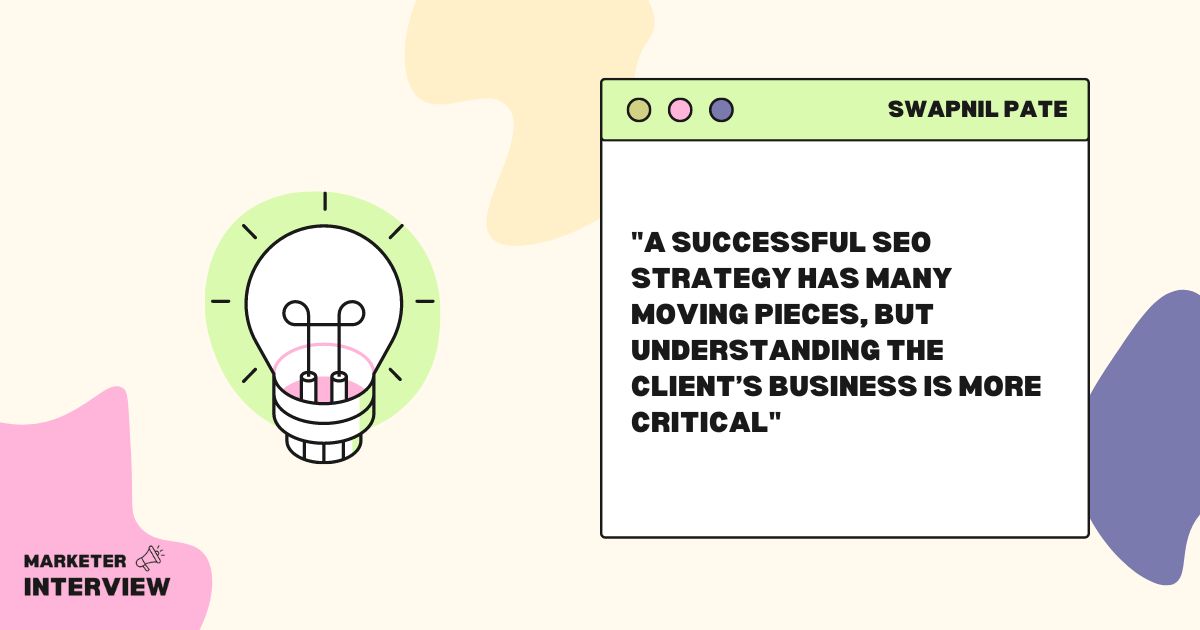
How do you measure the success of your SEO campaigns?
Each SEO campaign is unique, but we understand which KPIs matter the most and have a strong business impact.
Most of these are leads, demo schedules, calls, direct purchases, signups, and quality traffic.
We often track traffic for planned content, create goals and even trackers in Google Analytics, and track keyword progression for seed keywords. In addition, we create Looker Studio dashboards for a top-level view and create custom monthly reports to showcase campaign progress and add industry or competitor insights as well to it.
I firmly believe in the “Learn It Yourself” mindset, where I like to allow my team to try out tactics and techniques themselves and then understand whether it is an effective and efficient way.
I encourage my team members to look over the internet for any existing solutions to the problems, as others might have faced a similar challenge and found a way to resolve it.
I want people to be more efficient in finding answers. As SEOs, we should always be power searchers. The more curious my team is, the more excited I am to guide them to learn more about SEO.
I make sure that people in my team know the goal and vision we are trying to achieve, so they can also see why we are doing things a certain way.
Over the years, I have learned that giving employees clear goals and KPIs to measure those goals is an excellent way to help them grow.
When people know what we expect from them and where we see them in the future, they are highly motivated to reach the next level and make appropriate efforts to upskill themselves to get there.
How do you mentor and train your team to achieve their professional goals?
The first task of every team member is to make sure they learn the day-to-day work and process and have a strong understanding of the clients and projects we manage.
We have made sure there are SOPs and training material provided to the team to learn the basics. We also stress upon the team to learn client management and communication, as it goes a long way when working on the agency side.
For providing mentorship, we chart out an annual progression plan for all the employees where we map out their KPIs and goals and also allow them to identify what skills they want to learn and how that can help grow them as marketing professionals.
We plan weekly 1-2-1 training sessions from industry experts and have a few advanced courses or in-house training sessions related to SEO to help them learn new things.
I focus on time management, productivity, efficiency, communication, and work quality when I conduct feedback sessions with my team, as I can share my learnings and experiences of these from what I have learned over the years.
What tools and software do you use for your SEO work?
There are multiple tools I use depending on the use cases, but the following ones are a part of my core tool suite:
- Ahrefs, Semrush, LowFruits, and KeywordInsights for Keyword research, competitor analysis & clustering.
- SurferSEO, PageOptimizerPro, WriterZen, and Frase for Content briefing
- GA4 and Looker Studio for reporting
- GSC & SEO testing for granular organic performance analysis
- Notion for documentation and creating SOPs for tasks and deliverables
- Loom for review, feedback, or providing insights to clients
- ClickUp, Monday, Nifty for Project management
What advice would you give aspiring marketers looking to make it in the industry?
My advice to aspiring marketers is to have the hunger to learn, be proactive, and be willing to do any relevant work that comes their way.
People who show up and do things on their own learn most effectively. Also, keep on learning new things as you go along and try new ways to do the same thing to be more effective and efficient.
I sincerely believe in the late Steve Jobs’ words: Stay Hungry, Stay Foolish.
Also, look around for mentors who can guide you at a specific task/problem level and strategically in your career. I have been lucky to find several mentors throughout my career who have helped me identify my strengths and weaknesses and guided me to chart my growth path.

